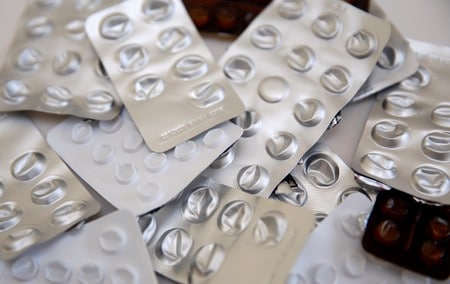By Ben Hirschler
LONDON (Reuters) – The British government called on Thursday for drugmakers to build an additional six weeks of medicines stockpiles to cope with potential supply disruption in the event of a no-deal Brexit – a target the industry said would be challenging.
In a letter to pharmaceutical companies, the government asked manufacturers “to ensure they have a minimum of six weeks additional supply in the UK, over and above their business as usual operational buffer stocks, by 29th March 2019”.
The highly regulated drugs sector is one of the most vulnerable to Britain’s decision to leave the European Union because of uncertainty as to how medicines oversight will function in the event of an abrupt exit next March.
That has sparked fears of drug shortages, and some companies – including AstraZeneca, Sanofi and Novartis – have already said they plan to increase stockpiles in Britain in case of a no-deal Brexit.
Steve Bates, chief executive of the UK Bioindustry Association, said delivering the additional six weeks supply across the industry in less than 200 days would be “a massive challenge”.
Currently, medicines regulation is governed at a pan-European level but Britain is set to leave that EU regulatory system after Brexit, prompting many drugmakers to prepare duplicate product testing and licensing arrangements.
In a bid to limit future difficulties, the UK government also said on Thursday it would take a pragmatic approach to future drug monitoring by recognizing and using products that have been licensed and tested in the EU.
Mike Thompson, chief executive of the Association of the British Pharmaceutical Industry, welcomed this move and called for similar flexibility from the European Commission to ensure minimal disruption of cross-border trade.
“The UK government has taken an important step to protect patients. We urge the EU Commission to do the same,” he said.
“We need to be clear that a no-deal scenario is not in the interest of patients. Both sides must rapidly agree the terms of the UK’s withdrawal and a future relationship based on cooperation to protect public health, control infectious diseases and manage medicine safety.”
More than 2,600 drugs have some stage of manufacture in Britain and 45 million patient packs are supplied from the UK to other European countries each month, while another 37 million flow in the opposite direction, industry figures show.
After Brexit, Britain will become a so-called third country for the purposes of medicines regulation and no longer part of the European Medicine Agency – the Europe-wide drugs regulator that is itself moving from London to Amsterdam because of Brexit.
The UK government moves on medicines are part of a wider set of plans setting out likely problems if London fails to negotiate an exit deal with Brussels.
(Reporting by Ben Hirschler. Editing by Jane Merriman)


